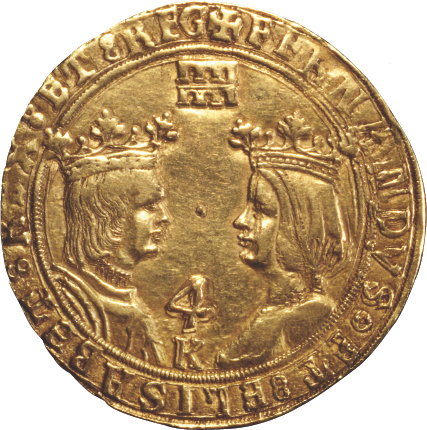Europeans Encounter the New World, 1492–1600

Printed Page 26 Chapter Chronology
Europeans Encounter the New World, 1492–1600

QUICK START
Quickly learn what is important in this chapter by doing the following:
- READ the Chapter Outline to see how the chapter is organized.
- SKIM the Chronology to see what will be covered.
When you are ready, download the Guided Reading Exercise, then read the chapter and the Essential Questions for each section and complete the Guided Reading Exercise as you go. Then use LearningCurve and the Chapter Review to check what you know.
Two babies were born in southern Europe in 1451, separated by about seven hundred miles and a chasm of social, economic, and political power. The baby girl, Isabella, was born in a king’s castle in what is now Spain. The baby boy, Christopher, was born in the humble dwelling of a weaver near Genoa in what is now Italy. Forty-one years later, the lives and aspirations of these two people intersected in southern Spain and permanently changed the history of the world.
Isabella was named for her mother, the wife of the king of Castile, whose monarchy encompassed the large central region of present-day Spain. As a young girl, Isabella was well educated, and she became a strong, resolute woman. When her half-brother Henry became king and tried to arrange her marriage, Isabella refused to accept Henry’s choices and maneuvered to marry Ferdinand, the king of Aragon, a region of northeastern Spain. The couple married in 1469, and Isabella became queen when Henry died in 1474.
Queen Isabella and King Ferdinand battled to unite the monarchies of Spain under their rule, to complete the long campaign known as the Reconquest to eliminate Muslim strongholds on the Iberian Peninsula, and to purify Christianity. In their intense efforts to defend Christianity, persecute Jews, and defeat Muslims, Isabella and Ferdinand traveled throughout their realm, meeting local notables, hearing appeals and complaints, and impressing all with their regal splendor.
Tagging along in the royal cavalcade of advisers, servants, and hangers-on that moved around Spain in 1485 was Christopher Columbus, a deeply religious man obsessed with obtaining support for his scheme to sail west across the Atlantic Ocean to reach China and Japan. An experienced sailor, Columbus had become convinced that it was possible to reach the riches of the East by sailing west. Columbus finally won an audience with the monarchs in January 1486. They rejected his plan. Doggedly, year after year, Columbus kept trying to interest Isabella until mid-April 1492, when she summoned him and agreed to support his risky scheme, hoping to expand the wealth and influence of her monarchy.
Columbus hurriedly organized his expedition, and just before sunrise on August 3, 1492, three ships under his command caught the tide out of a harbor in southern Spain and sailed west. Barely two months later, in the predawn moonlight of October 12, 1492, he glimpsed an island on the western horizon. At daybreak, Columbus rowed ashore, and as the curious islanders crowded around, he claimed possession of the land for Isabella and Ferdinand.
Columbus’s encounters with Isabella and those islanders in 1492 transformed the history of the world and unexpectedly made Spain the most important European power in the Western Hemisphere for more than a century. Long before 1492, other Europeans had restlessly expanded the limits of the world known to them, and their efforts helped make possible Columbus’s voyage. But without Isabella’s sponsorship, it is doubtful that Columbus could have made his voyage. With her support and his own unflagging determination, Columbus blazed a watery trail to a world that neither he nor anyone else in Europe knew existed. As Isabella, Ferdinand, and subsequent Spanish monarchs sought to reap the rewards of what they considered their emerging empire in the West, they created a distinctively Spanish colonial society that conquered and killed Native Americans, built new institutions, and extracted great wealth that enriched the Spanish monarchy and made Spain the envy of other Europeans.